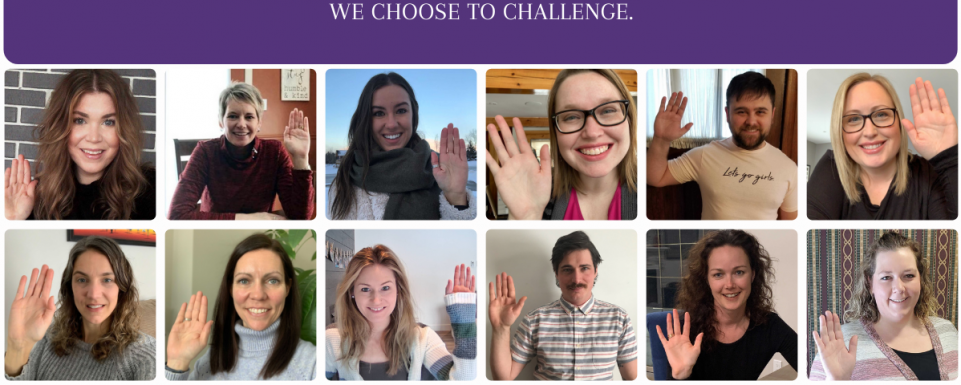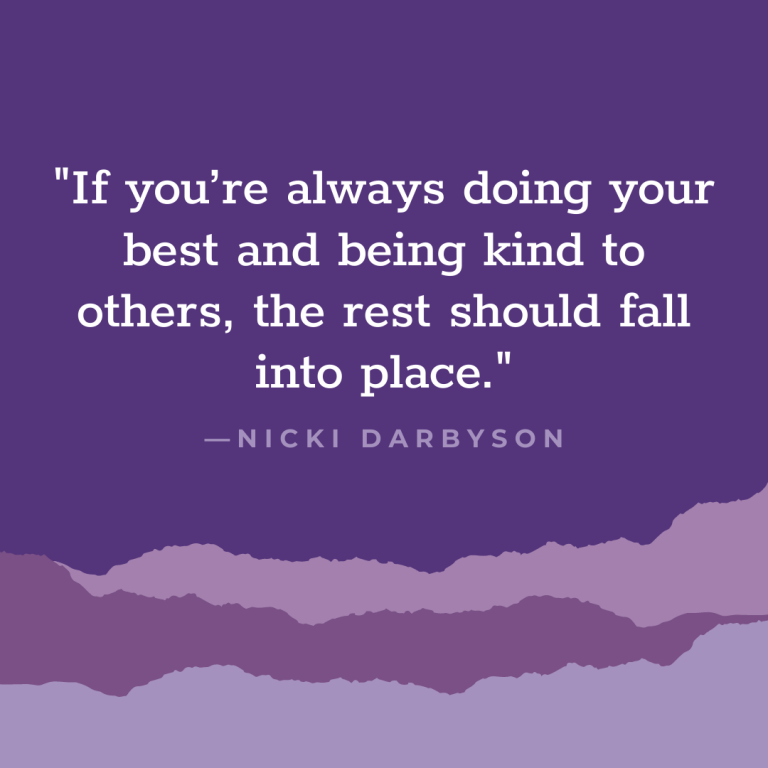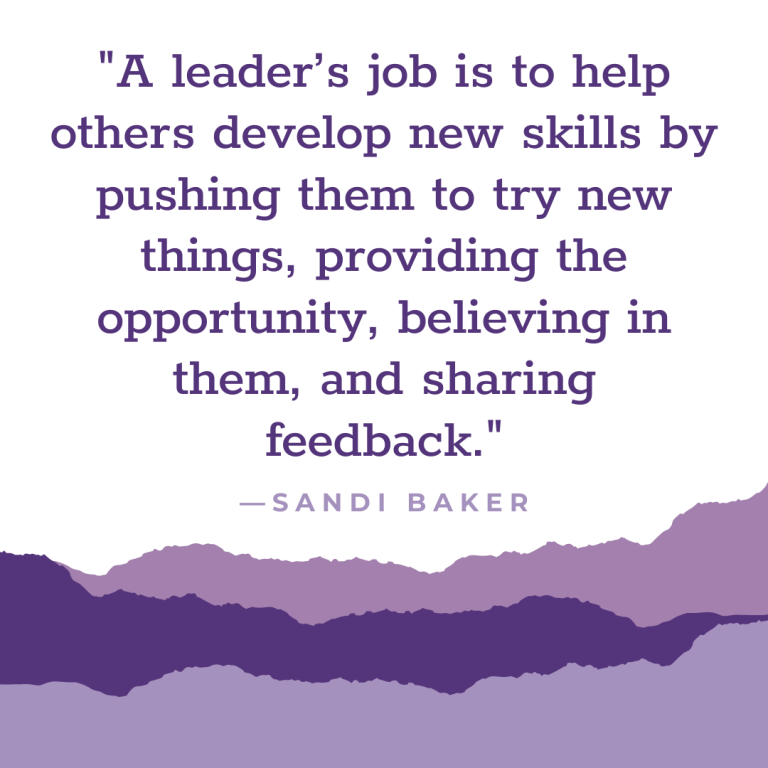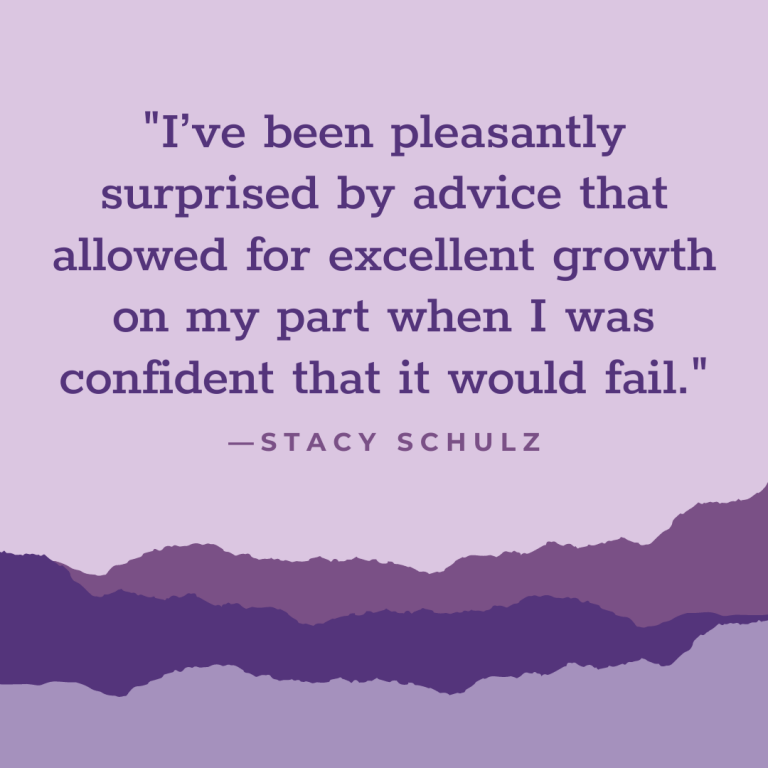Celebrating Women in Leadership
March 8, 2021

In honour of International Women’s Day, we want to take the opportunity to celebrate some of our very own Virtual High School women in leadership roles. VHS is committed to helping create an equal world for all genders. We will raise awareness against bias, take action for equality, and celebrate women’s achievements. We choose to challenge.
Today, and every day, we hope you will join us in the call to action for advancing women’s inclusion and visibility.
Nicki Darbyson – Head of Business Development and Communications

What is the best advice that you’ve ever received?
“Aim high. Be kind.” This was the motto of one of my mentors in grad school. “Did you do your best?” “Did you operate from a place of kindness?” He told me that these are the only measures of success that matter in the end. His motto really stuck with me, and I think about it all the time when I’m making decisions or when I’m being hard on myself. If you’re always doing your best and being kind to others, the rest should fall into place. Aim high. Be kind.
How do you go about making decisions for your team?
I don’t think I’m very good at making decisions “for” the team. I’m actually quite an indecisive person (sometimes painfully so), so I default to talking about things with the team so we’re coming to a conclusion together. At the end of the discussion, it might be obvious what we should do. If we’re spinning our wheels a bit, I might say “So, what I’m hearing is…” to make sure that I understand the various perspectives, and then I can suggest a next step. Some decisions require some follow-up research or data, while other matters require an immediate leap. That’s uncomfortable at times, but when a smart group of people has discussed the issue, it’s not so bad.
Minimizing the small decisions in life can help you make better big decisions because people can suffer from decision fatigue. For example, eating the same thing for breakfast every day or choosing from fewer clothing options can help you to preserve your decision-making energy and willpower for the rest of the day. In other words, be a bit boring in some aspects of your life so that you can be more extraordinary in others.
What do you do to ensure that you continue to grow and develop as a leader?
I think getting involved in different projects, committees, and groups outside of your organization, such as non-profit boards or fundraising committees, is a wonderful way to challenge yourself and meet leaders who model good leadership traits. Getting involved is great for self-development and building connections. You never know where the connections will lead, but they often facilitate new opportunities to learn a lot.

I also like reading and listening to podcasts on the topic of leadership so that I can try to put those ideas into practice. These are some of my favourite writers on the subject of leadership:
1. Brene Brown. Her focus is on vulnerability. Dare to Lead is a great book. She also has a podcast out now.
2. Nancy Levin. The Boundary Badass presents the idea that setting boundaries is an act of kindness to yourself and others. It was a game changer for me.
3. Daniel Pink. He has some great stuff on motivation, workforce satisfaction, and employee engagement. Here’s his Ted Talk.
4. Patrick Lencioni. His books on leadership and effective meeting styles are all parables, so they are useful, quick reads.
Sandi Baker – Head of Operations

What are some important lessons that you’ve learned in your career?
The first important lesson I’ve learned is to communicate openly and with authenticity. Some of the decisions you make as a leader make a lot of sense to you, but maybe not to others because they don’t have all of the information that you do. I’ve learned to share whatever I can. If there is confidential information that can’t be shared, I try to ensure that I am taking the time to explain the reasoning as best I can. Alongside that, you must be authentic. People will easily see when you are concealing the real reasons behind the decision.
Another very important lesson is to never leave an action item without a deadline. Setting reasonable deadlines is important. In my experience, something without a deadline will always be pushed aside. Even if the date is flexible, having some sort of deadline in mind is essential to getting the task done.
How do you empower others?
I’ve learned to empower others simply by giving them a chance. We all started somewhere and had to learn from our mistakes along the way. A leader’s job is to help others develop new skills by pushing them to try new things, providing the opportunity, believing in them, and sharing feedback.
What advice would you give to someone starting out in their career?
Don’t be afraid of someone challenging your opinion. I encourage you to actually seek out the opinion of those who challenge you. At first, someone challenging your opinion or decision can feel terrible. Personally, I don’t like to be wrong and if I’ve put a lot of time and effort into something, having it challenged can feel defeating. Once I get past my initial reaction, I know that those challenging opinions are what help me to make better decisions and consider other perspectives. I’ve learned to welcome those challenges more readily and actually seek them out before finalizing decisions to ensure that I’m getting the full picture.

Stacy Schulz – Vice Principal of Academics

What is the best advice that you’ve ever received?
Like many others, I’ve had my share of jobs where the “boss” saw me more as their personal minion than as a valued member of the team. In those experiences, the team lead often seemed to quite awkwardly put forward actions that they thought were expected of a leader. More often than not, they were actions to demonstrate and reinforce the hierarchy of our different roles. Needless to say, that was not the kind of experience I was hoping to find when I began working for them.
Soon after graduating from university, I had the opportunity to work for someone who (to me) embodied the characteristics of a natural leader, someone who didn’t seem to have to work at leading a team. This person assigned valuable projects and trusted my professional ability to complete the tasks. They didn’t tell me which path to take in completing the tasks and didn’t insert themselves in my daily decision-making, but rather made it clear that they were there if I ran into any obstacles. Whenever there was a problem, this person focused on solutions, trusting and expecting that those involved would sort out how to avoid a similar problem in the future. This person made sure that the team had whatever resources we needed to be successful and introduced me to potential collaborators with different skill sets to help balance our team. They asked questions, listened, and valued my opinion. I recognized that I was respected and that solidified my respect for my team lead. This approach might not be for everyone, but I thrived within this type of work relationship. I felt that if I ever found myself in a leadership position, I’d like to incorporate as much of this style as I could into my own practice. I have not yet perfected it, but I keep trying.
How do you empower others?
I try to empower others by giving them a voice in decision-making discussions and requesting their input for building our best practices whenever possible. I also look for opportunities to let team members think through individual decisions and approaches (with guidance), rather than telling them how I think things should be done or what I think is the right decision.
What do you do to ensure that you continue to grow and develop as a leader?
I look at how my team is functioning and responding to me as a team lead to identify areas for improvement. Then, I talk to people who are experienced leaders and see how they provide good leadership in those areas. I am always open to advice and put all reasonable suggestions to the test. I’ve been pleasantly surprised by advice that allowed for excellent growth on my part when I was confident that it would fail.
